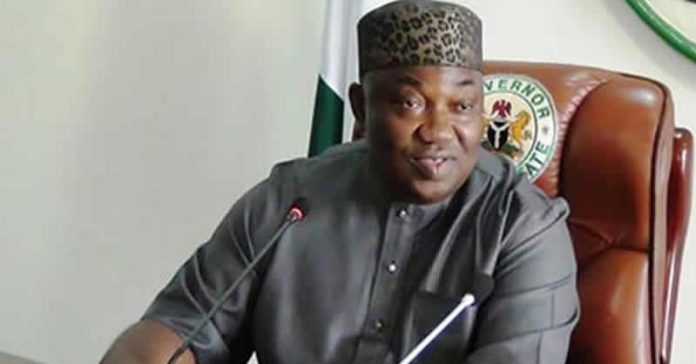A consortium of consulting firms, Mauritz Walton Nigeria Limited, and Bizplus Consulting Services Limited, has asked a High Court of the Federal Capital Territory (FCT) to order the Enugu State Government to pay them the sum of N10.2billion being the debt owed them regarding the Paris Club refund.
The amount forms 20 per cent of the sum of N44. 4billion the firm helped the state to recover from the federal government.
According to the claimants, the debt arose as a result of the defendants failure to pay the claimants the agreed 20 percent of the sum of N44.4 billion, and consultancy fees for its role in the federal government’s refund of excess deductions in the Paris Club loans.
Between 2002 and 2007, the Nigeria Government, through its Federation Account Allocation Committee (FAAC), in concert with the 36 states, reconciled the external loans/debts, and in the process, it was discovered that excess deductions under the first line charge were made to service foreign loans owed by the federal government and the states.
Owing to the discrepancies, the Enugu State Government, like some other states, engaged the services of the firm, via a letter dated June 9, 2014, to help reconcile and recover the money over deducted or charged of foreign loan facilities of Enugu State Government from 1992 to 2008.
Claimants in the suit marked M/1993/2021 are Bizplus Consulting Services Limited and Maurice Walton Nigerian Limited, while Enugu State Government and Attorney General of the state are first and second defendants respectively.
In the 31-paragraph witness statement on oath, which was deposed to by Dr. Maurice Ibe, the claimants said the Enugu State Government agreed to pay them “20 percent of all monies recovered/paid from/by the Federal Government of Nigeria upon reconciliation and agreement on the exact excess debit.”
Based on the agreement, the claimants said they went ahead to intensify engagement with the Ministry/Minister of Finance and the Debt Management Office (DMO) wherein they were able to prove that the Enugu State Government between “June 1995 and March 2002 suffered excess deductions/debits regarding its external loans/debits repayment in the total sum of $142,034,156 which they therefore demanded to be refunded to the first defendants.”
According to claimants, their irrefutable case made to the Ministry of Finance and the Debt Management Office as well as other relevant federal government agencies for the refund of the excess deductions led to the payment of the sum of N44.4billion to the Enugu State Government.
“Notwithstanding its receipt and enjoyment of the refund of excess debit on its foreign loan account by the claimants’ expert intervention in the circumstances detailed in the preceding paragraphs, the first defendant has refused/neglected/failed to pay the claimants the agreed 20 percent thereof, in full or in part, despite several requests and seemingly fruitful meetings between the Enugu State Government and me over a period of about 18 months prior to the commencement of this suit,” the deponent averred.
Ibe added that the refusal by the state government to pay the consultancy fee as well as their disregard to several letters written by their lawyer demanding payment, led the claimants to institute the legal action.
Thus, the claimants prayed the court to order the defendants to pay them the sum of N10.2billon being debt owed by the first defendant as consultancy fee for the recovery of the excess debit on the Enugu State foreign/external loan.
The claimants also prayed for the payment of interest at the rate of 20 percent per annum from November 1, 2018, until the judgement and thereafter, at the rate of 10 percent until full and final payment. They also demanded the sum of N400million as cost for instituting the suit.
The suit dated March 1, 2021, and filed by Collins Akinade from Chief Wole Olanipekun (SAN) law firm is being stalled by the ongoing strike by the Judiciary Staff Union of Nigeria (JUSUN) over states refusal to allow for the financial autonomy of state judiciaries.


